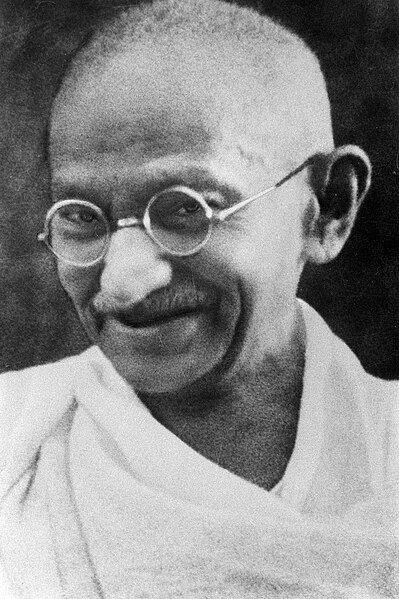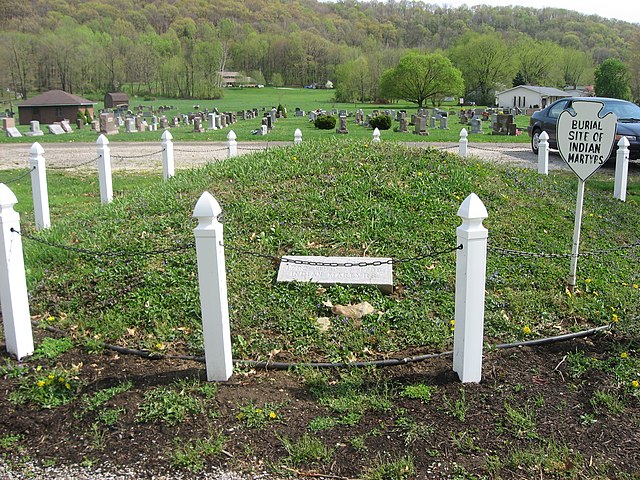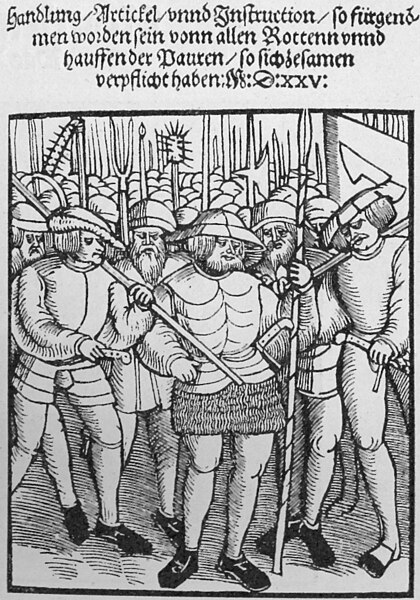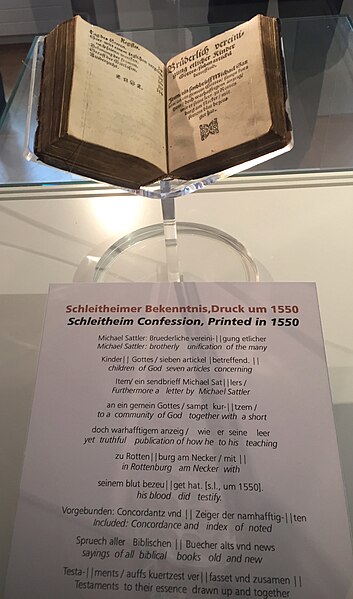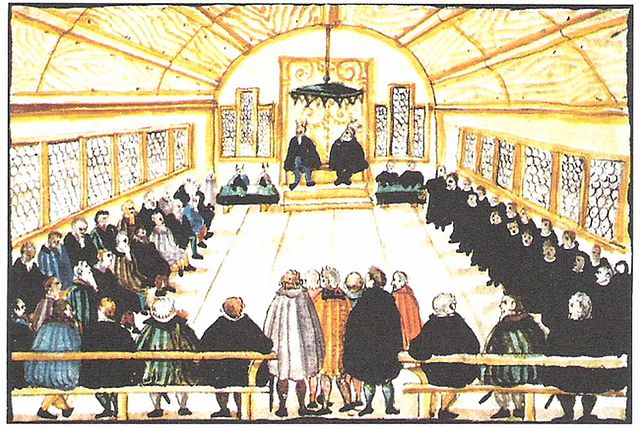Nonresistance is "the practice or principle of not resisting authority, even when it is unjustly exercised". At its core is discouragement of, even opposition to, physical resistance to an enemy. It is considered as a form of principled nonviolence or pacifism which rejects all physical violence, whether exercised on individual, group, state or international levels. Practitioners of nonresistance may refuse to retaliate against an opponent or offer any form of self-defense. Nonresistance is often associated with particular religious groups, such as Anabaptist Christianity.
Mahatma Gandhi used the principle of nonresistance protest in Indian independence movement.
Burial site of the Moravian Christian Indian Martyrs, who were murdered by U.S. militiamen in the Gnadenhutten massacre
Anabaptism is a Christian movement which traces its origins to the Radical Reformation in the 16th century. Anabaptists believe that baptism is valid only when candidates freely confess their faith in Christ and request to be baptized. Commonly referred to as believer's baptism, it is opposed to baptism of infants, who are not able to make a conscious decision to be baptized.
Twelve Articles of the Peasants pamphlet of 1525
Schleitheim Confession printed in 1550, displayed in the Anabaptist Room of the Local History Museum in Schleitheim, Switzerland.
Dissatisfaction with the outcome of a disputation in 1525 prompted Swiss Brethren to part ways with Huldrych Zwingli.
Thomas Müntzer led the German peasants against the landowners

